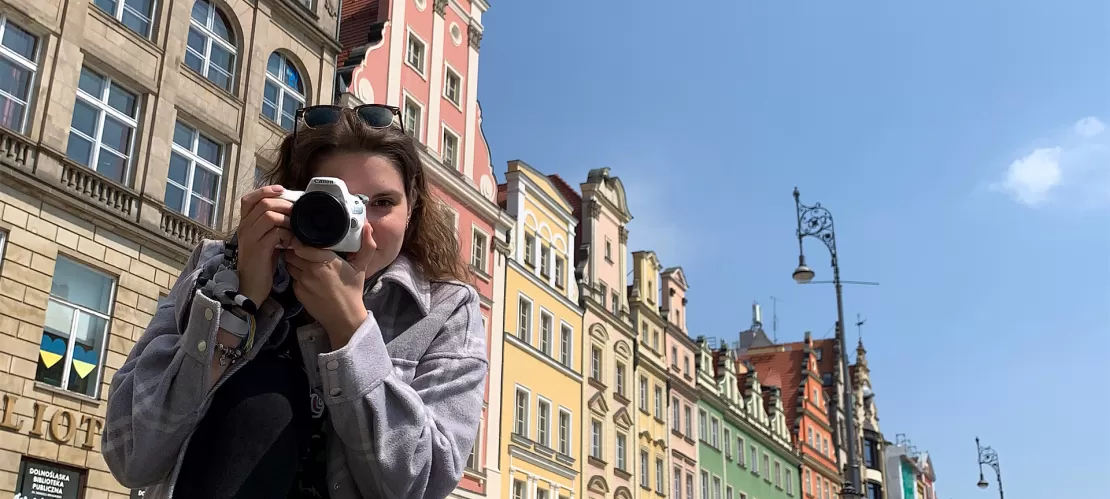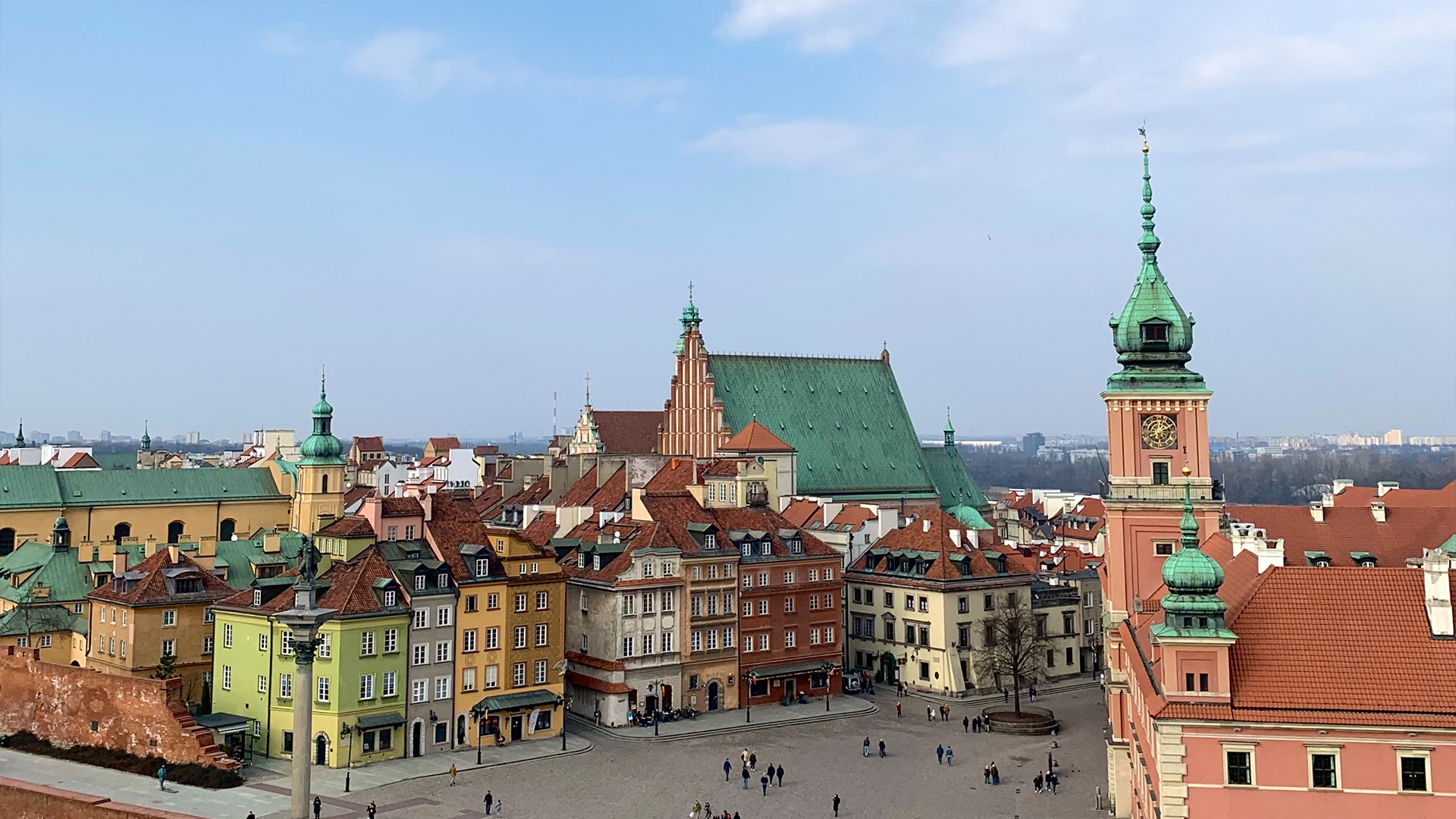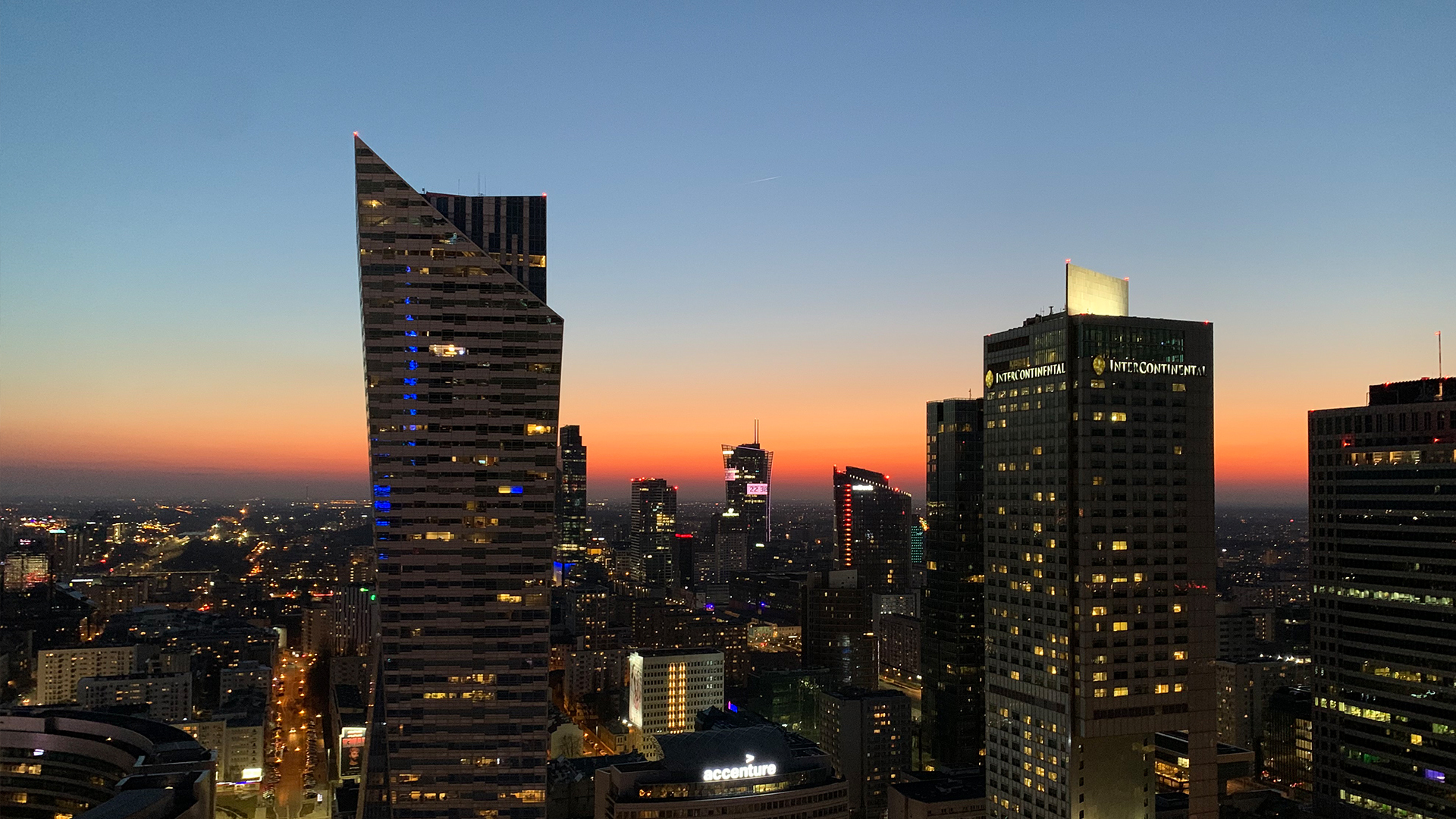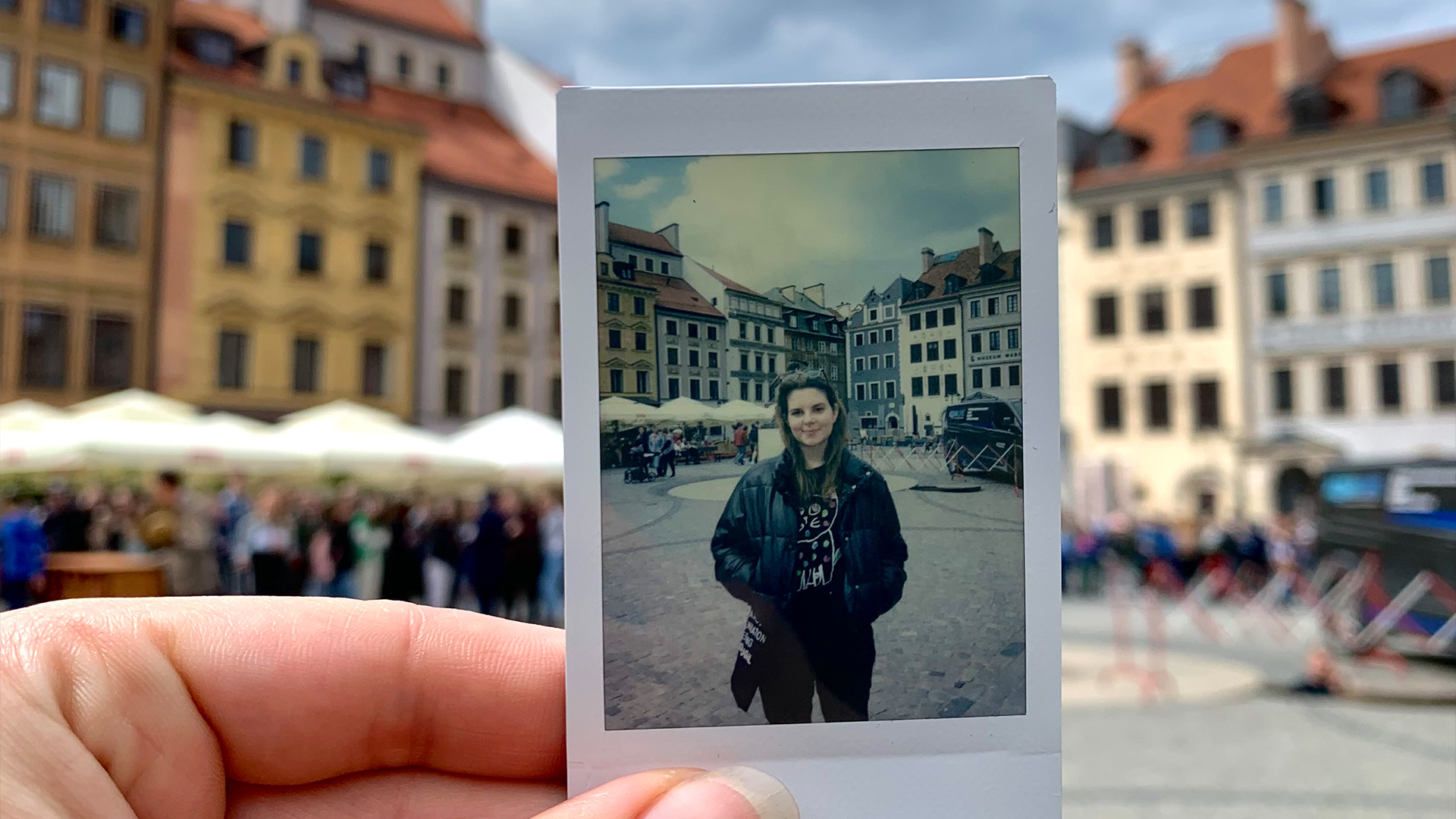
Maybe some people might not see Poland as a very welcoming country when it comes to the LGBTQI+ community, but it seems like Laura never felt unwelcomed there. After talking to local volunteers of the Erasmus Student Network (ESN), she found out that the reason for that might be the fact that she is living in Warsaw. The capital city is every year more and more filled with international open-minded people where everyone is “getting used to accepting differences”. That might not be the case in smaller places or in the countryside, but she never felt anything less than completely accepted for who she is.
Although, she did make a little research about the LGBTQI+ topic in Poland before she moved there for a whole semester. “I wanted to compare Croatia with Poland when it comes to rights. The only difference that I found is that same-sex partners in Poland can’t adopt children and in Croatia they can, but that’s only in the past two years or so. It really doesn’t feel that different, which in the end might be more due to the fact that they were trying to put some laws that would restrict the freedom, but it didn’t end up happening. When it comes to the actual law, there are not many differences between Croatia and Poland from what I’ve found, if I can trust the internet.” It seems like some surprises came even before she embarked on her mobility adventure!

“I might even feel like it’s easier to talk about my sexuality here than at home. At home, people who have known me for a long time didn’t know about it because I didn’t even know about it. It’s weird coming out to them because it might be something more unexpected, whereas when it’s to someone new who doesn’t know you, I guess it was easier for me to talk about it. Whenever someone had questions I wouldn’t mind answering. I was pretty open about it, so I hope it stays that way when I come back to Croatia as well.”
When it comes to her student life and the level of inclusivity at her host university in Warsaw, it was a bit harder to distinguish even though there were no language barriers or any kind of problems with the professors. On the other hand, it was very visible how the local ESN volunteers and their activities are always supportive of the LGBTQI+ community: “For example, on Saturday there is a Warsaw Pride Parade, which I was surprised exists, but it does. And ESN is organising an event so that we can meet up and go together to the Parade which is pretty cool. So, in case you don’t feel included at the university, at least ESN makes you feel like you are.”

Fortunately for her, she has never experienced bigger forms of discrimination based on her sexual orientation, it was mostly “only weird looks from people or some guys commenting that I haven’t been with a real man so that’s why I like girls”. She wasn’t in any kind of situation that made her feel scared or discouraged from being who she is. Even when it was “just” bad comments, she used them for her own advantage: “It made me feel more like we should talk about it to make it more normal and not something I have to hide. The people who have opinions that it’s a disease or that something is wrong with you are the reason that we have to talk about it more and then maybe more people will realise that it is normal, and it’s the reality.”
I was very happy when I heard she always had big support from her family and friends because, unfortunately, not everyone does. “Maybe that’s the reason why I’m so open and don’t feel weird talking about it. If I meet new people, and they don’t agree with it or something, I just know that’s not the type of person for me. I feel sad that some people don’t feel comfortable in their homes to talk about it and that they can’t be themselves. In my opinion, that’s the biggest problem you can have.”
Although, there was a situation where some guy gave her a weird look after she told him she has a girlfriend. She was shocked because she didn’t experience it before and started to wonder... “I was a bit uncomfortable in that situation and I thought maybe more people will react like that if I tell them. I remember that reaction sometimes, but I don’t think it changed anything. I still don’t hide it from people, but I do think about if a person is someone who needs to know. In case they don’t, and they feel like someone who might have weird comments, I’m going to shield myself from them and just not talk about it or just go around the topic.”

Laura’s advice for any LGBTQI+ community member who would like to go on mobility but is insecure would be: “The Erasmus lifestyle is very different from being at home, and you feel a lot freer. I really had no fear and I think that people shouldn’t hide it. Don’t hide your true self unless it’s really important to be safe, or you don’t feel well in a situation. Generally, especially on an exchange, when I show it to people, they get used to it like everything else. People were weirded out with electronics when the technology started getting better but now everyone is used to it, even older people are using phones and stuff. I think the more you talk about it, not in a way of putting that in the centre of attention but just including it in the conversation, the more it becomes like any other normal topic.”
In the end, there are always more similarities that we can choose to unite us, rather than letting differences separate us. This is exactly what a student exchange or any kind of mobility is here for - to teach and show us how to celebrate diversity, which is never a disadvantage, only a power of the Erasmus Generation. I am leaving you with Laura’s words, hoping they will give courage to the ones who need it or just a smile on their face to anyone who reads this piece: “When I was sad one day I started making this note, and then I forgot about it. It was ‘Things to look forward to’ and the only thing on the list was ‘Erasmus’. I found it about a year later while there was nothing else to look forward to. Now, finally, I’m going, and I made it happen. What am I going to do now that it’s over? Now I’m looking forward to visiting my Erasmus friends in their home countries!”
